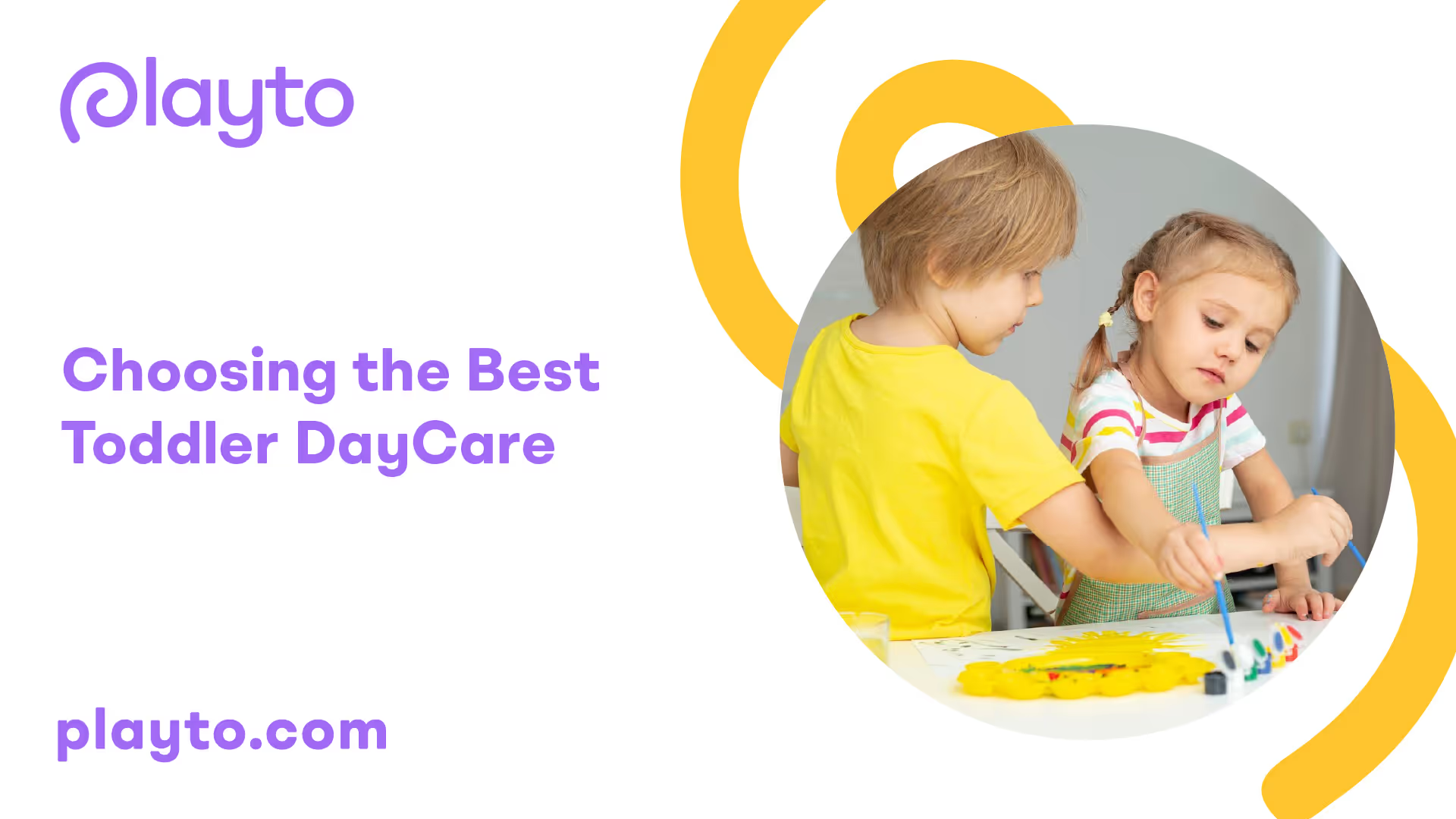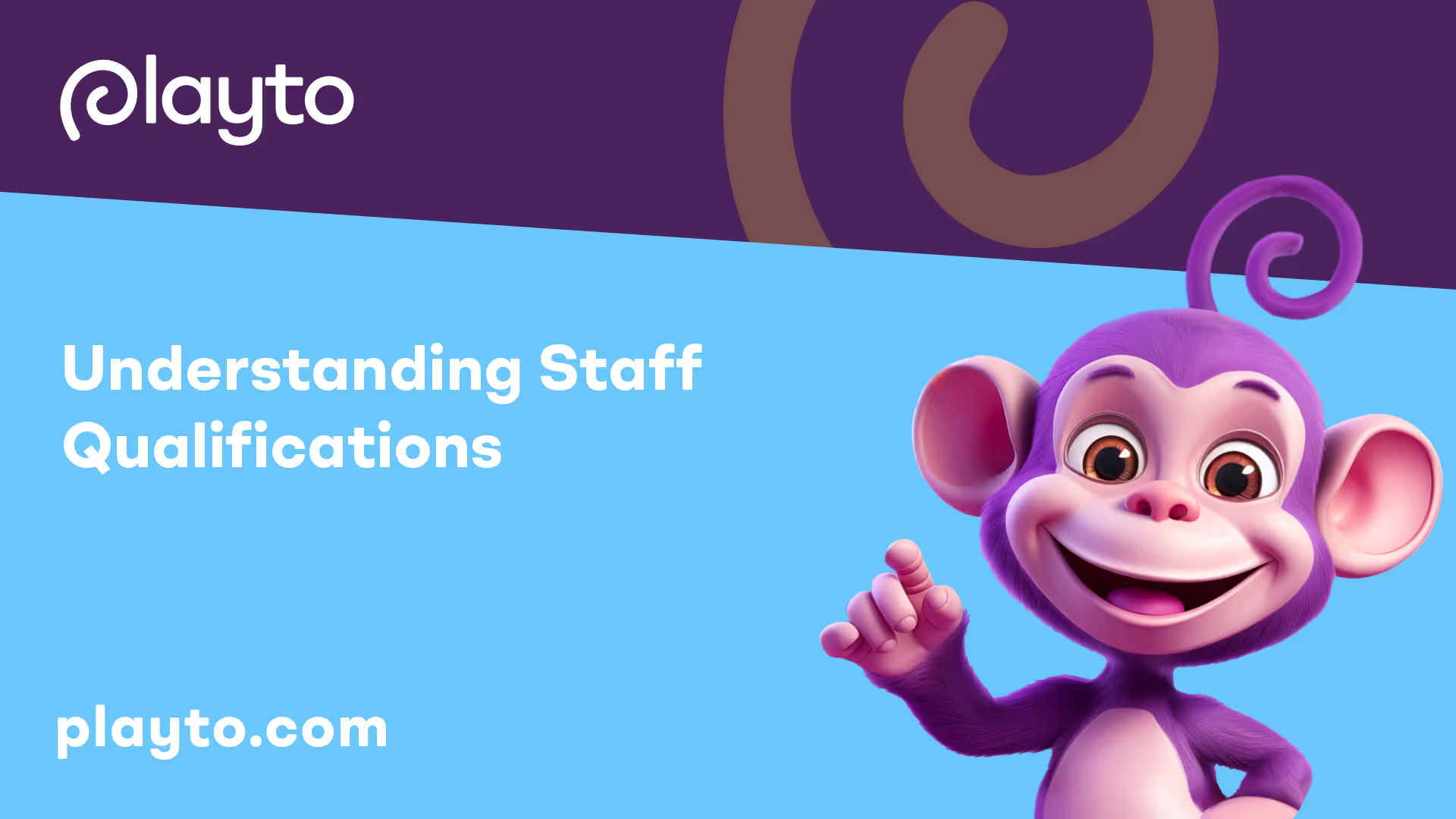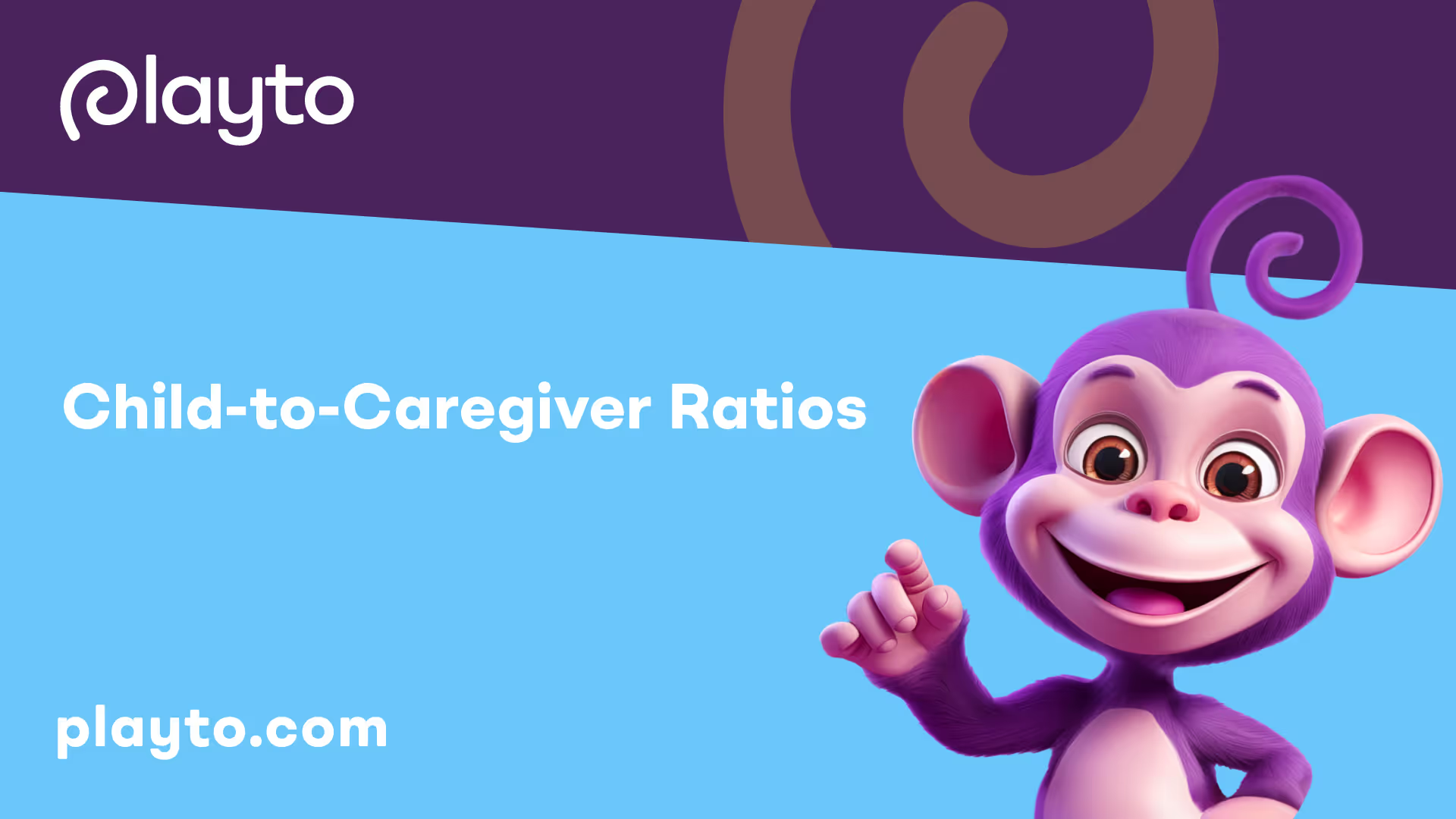
Importance of Quality Daycare
Choosing a daycare for toddlers is an important decision for parents. Quality daycare can have a profound impact on a child's early development. This section explores the benefits of daycare for toddlers and the critical role caregivers play in fostering growth.
Benefits of Daycare for Toddlers
Daycare centers provide a rich social environment filled with new experiences and educational activities. These settings help children prepare for developmental milestones, such as language acquisition and social skills. According to Bright Horizons, children who attend daycare benefit from structured routines that promote independence and the ability to interact with peers.
Benefit Description
- Socialization: Interaction with other children helps develop social skills.
- Learning Environment: Exposure to educational activities promotes cognitive development.
- Routine: Structured schedules establish a sense of security and predictability.
- Preparation for School: Early experiences in a group setting ease the transition to formal education.
Parents considering daycare should look for programs that emphasize these benefits. Understanding the daycare benefits for toddlers can guide them in making informed choices.
Role of Caregivers in Development
The quality of care provided by daycare staff is essential for promoting a child's physical, mental, and emotional well-being. Research shows that trained caregivers are more likely to support the cognitive development of children in their care. Caregivers who receive ongoing health and safety training are better equipped to create a safe, nurturing environment for toddlers.
Caregiver RoleImpact
- Promoting Health: Caregivers ensure that children engage in healthy habits and activities.
- Encouraging Learning: Trained caregivers facilitate learning through play and exploration.
- Supporting Emotional Growth: Caregivers help children develop emotional intelligence and resilience.
It is crucial for parents to understand how daycare shapes toddler growth. They should inquire about staff qualifications and training requirements to ensure their child is in capable hands. Parents can learn more about the importance of caregiver training by exploring our resource on how daycare shapes toddler growth.

Understanding Staff Qualifications
Choosing the best toddler daycare involves evaluating the qualifications of the staff. Qualified caregivers are essential for ensuring a safe and nurturing environment for children.
Training and Certification Requirements
Research indicates that trained caregivers significantly enhance the physical, mental health, safety, and cognitive development of the children in their care. It is crucial to verify that caregivers possess the necessary training and certifications, as each state has specific licensing regulations.
The following table outlines common training and certification requirements for daycare staff:
Requirement Description
- CPR and First Aid Certification: Staff must be certified in cardio-pulmonary resuscitation (CPR) and first aid to handle emergencies effectively.
- Child Development Training: Caregivers should have training in early childhood development, focusing on the unique needs of toddlers.
- Background Checks: All staff members must undergo background checks to ensure child safety.
- Ongoing Professional Development: Staff should engage in continuous education to stay updated on best practices in childcare.
State or territory child care licensing offices monitor licensed programs to ensure that staff meet all training requirements established by local regulations.
Ongoing Health and Safety Training
Another critical aspect of staff qualifications is ongoing health and safety training. To protect children's health and safety, daycare staff are required to participate in regular training sessions. Federal law mandates specific health and safety training topics for adults caring for children in licensed settings.
Key components of ongoing health and safety training include:
- Infection Control Practices: Training on hygiene and preventing the spread of illnesses.
- Emergency Preparedness: Instruction on how to respond to various emergencies, including natural disasters.
- Child Abuse Recognition and Reporting: Training on identifying and reporting signs of potential abuse or neglect.
It is essential for parents to inquire about the health and safety training that staff undergo to ensure that their children are in a safe environment. More information on child care licensing requirements related to qualifications and ongoing training of staff can be found by selecting your state or territory on the Understanding and Finding Child Care Resources page.
By understanding the qualifications and training requirements for daycare staff, parents can make informed decisions when selecting the right daycare for their toddlers. For insights on the advantages of daycare, consider reading our article on daycare benefits for toddlers.

Child-to-Caregiver Ratios
Understanding child-to-caregiver ratios is crucial when choosing the best toddler daycare. These ratios determine the amount of individualized attention each child receives, significantly impacting their development and overall well-being.
Recommended Ratios for Toddlers
Different age groups require specific staff-to-child ratios to ensure children receive appropriate care. For toddlers, the following ratios are recommended:
Age Grou Staff-to-Child Ratio Maximum Group Size
- Newborn to 2 years: 1:4
- 2 to 2.5 years: 1:6
- 3 years: 1:8
- 4 years: 1:13
- 5 years: 1:17
- 6+ years: 1:18
These ratios are designed to provide optimal care and attention to the unique needs of each age group, ensuring that toddlers receive the support they require during critical developmental stages [2].
Impact of Ratios on Care
The child-to-caregiver ratio directly influences the quality of care children receive. A lower ratio allows for more personalized attention, fostering a nurturing environment where toddlers feel safe and supported. This individualized care is essential for promoting emotional security and social development.
High child-to-caregiver ratios can lead to overstretched staff, resulting in less effective supervision and diminished attention to each child's needs. Therefore, it is vital for parents to inquire about the ratios during daycare tours to ensure their children will receive the necessary care and attention.
In summary, maintaining appropriate staff-to-child ratios is a fundamental aspect of toddler daycare. Parents should prioritize this factor when selecting a daycare, as it plays a significant role in their child's growth and safety. For more insights on toddler development, visit our articles on daycare benefits for toddlers and how daycare shapes toddler growth.
Choosing the Right Curriculum
Selecting the right curriculum for a toddler daycare is a critical decision that influences a child's early learning experience. A well-structured curriculum not only enhances the educational environment but also supports the holistic development of toddlers.
Elements of a Good Curriculum
A good daycare curriculum should encompass several key elements to ensure a comprehensive learning experience. It is recommended to invest in a professionally developed curriculum tailored for early childhood education. Such programs provide reduced preparation time, access to ready-made materials and training, and align with developmental milestones and diverse learning styles.
A quality curriculum should cover all four developmental domains:
Developmental Domain Focus Areas
- Physical Development: Motor skills, coordination, health habits
- Cognitive Development: Problem-solving, critical thinking, literacy
- Social Development: Interaction with peers, teamwork, communication
- Emotional Development: Self-regulation, empathy, relationship building
Incorporating these domains encourages children to develop healthy habits and a well-rounded personality. Moreover, integration of assessments within the curriculum allows for effective monitoring of each child's growth and development.
Importance of Developmental Goals
Establishing clear developmental goals is essential for any daycare curriculum. Annual learning objectives should be aligned with state early learning standards and encompass various subject areas such as science, mathematics, language, and social/emotional health. This structured approach not only sets expectations for learning but also provides a framework for assessing progress.
A digital curriculum program, such as Procare Early Learning, is highly recommended for early childhood education centers. This all-digital curriculum includes over 4,000 daily activities tailored for different age groups and integrates assessments, lesson planning, and parent engagement within one platform.
By focusing on these elements and developmental goals, caregivers can create a supportive and enriching environment that promotes overall child development. For more insights on how daycare influences toddler growth, visit our article on how daycare shapes toddler growth.
Communication with Parents
Effective communication between childcare providers and parents is essential for fostering a supportive and collaborative environment for toddlers. This section discusses strategies for effective communication and ways to engage parents in their child's development.
Strategies for Effective Communication
Childcare centers must adapt their communication strategies to meet the needs of parents, especially in light of challenges posed by the coronavirus pandemic, which limits face-to-face interactions. It's important for childcare providers to connect with parents through their preferred platforms, such as email, SMS text messaging, or social media.
Communication Method Description
- Email: Allows for detailed updates and information sharing.
- SMS Text Messaging: Provides quick updates and reminders.
- Social Media: Engages parents with visual content and community building.
Establishing shared goals and priorities with parents regarding their child's development is crucial. This collaboration helps providers design activities tailored to each child's needs and connect families with additional resources to support those objectives.
Engaging Parents in Development
Engaging parents in their child's development can enhance learning experiences both at daycare and at home. Encouraging families to use developmental milestone checklists is one effective strategy. These checklists, such as the Milestone Moments booklet from the CDC’s “Learn the Signs. Act Early.” program, are easy-to-use tools that help families monitor their child's growth.
When discussing concerns regarding a child's development, it is beneficial to have an established relationship with the parents. Caregivers should be prepared and focus conversations on specific developmental milestones. Using the completed milestone checklist as a reference can help facilitate these discussions, providing an objective basis for identifying and confirming concerns.
By implementing these strategies, daycare providers can create a strong partnership with parents, ultimately benefiting the child's overall development and well-being. For more insights into the benefits of daycare, explore our article on daycare benefits for toddlers.
Addressing Behavioral Concerns
Managing the behavioral dynamics among toddlers in daycare settings is critical for ensuring a safe and supportive environment. Conflicts can arise as children navigate their emotions, and understanding how to effectively manage these situations is important for caregivers and parents alike.
Managing Conflict Among Children
Toddlers, particularly those aged 2-3 years, may struggle with regulating their emotions, which can lead to impulsive behaviors such as hitting. A quality daycare should have strategies in place to intervene when conflicts occur. Caregivers should promptly separate children involved in disputes and provide guidance on acceptable behaviors. This proactive approach helps to minimize disruptions and fosters a positive social atmosphere among peers.
It's essential for daycare staff to communicate with parents regarding behavioral incidents. This collaboration ensures that parents are aware of any challenges their child may be facing and allows for consistent discipline strategies to be implemented both at home and in the daycare setting. For more information on the benefits of daycare, refer to our article on daycare benefits for toddlers.
Importance of Prompt Intervention
The importance of addressing instances of hitting or bullying cannot be overstated. Immediate intervention by caregivers or supervisors is necessary to ensure the safety and well-being of all children in the daycare. If the environment is not conducive to a child's development due to inexperienced or stressed staff, it may be necessary to consider alternative daycare options for the child's safety.
Implementing clear behavioral policies and offering training for staff on conflict resolution techniques can significantly enhance the daycare environment. This ensures that caregivers are equipped to handle disputes effectively and teach children essential social skills. For more insights into how daycare shapes toddler growth, see our article on how daycare shapes toddler growth.
In summary, effectively managing behavioral conflicts and intervening promptly are critical components of maintaining a healthy daycare environment. Parents should feel confident that their child's daycare is committed to their safety and development, making it essential to choose a facility that prioritizes these aspects. For tips on preparing for your child's first day, check out our article on first day tips for toddler daycare.
References
- [1]: https://childcare.gov/consumer-education/staff-qualifications-and-required-trainings
- [2]: https://csawis.com/whats-ideal-child-caregiver-ratio-daycare/
- [3]: https://www.procaresoftware.com/blog/nine-steps-to-create-the-best-daycare-curriculum/
- [4]: https://www.procaresoftware.com/blog/10-parent-communication-strategies-in-child-care/
- [5]: https://www.cdc.gov/ncbddd/watchmetraining/
- [6]: https://www.quora.com/Are-teachers-at-a-daycare-supposed-to-report-a-parent-teacher-hitting-their-child-at-daycare-by-law
.avif)